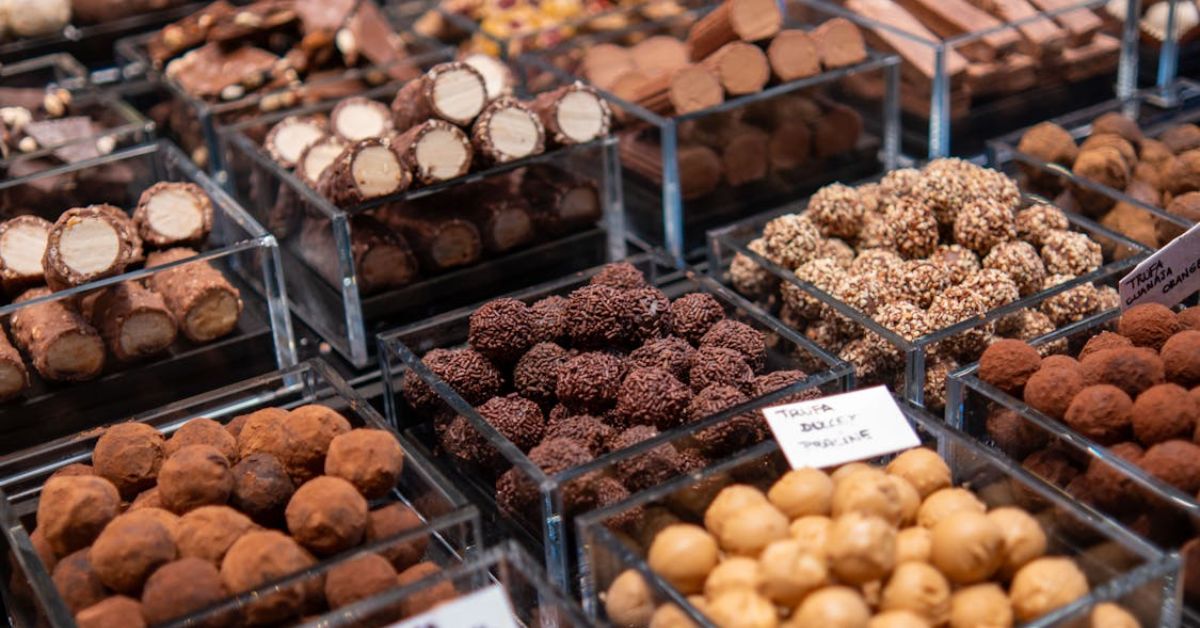Eco-Friendly Molded Chocolates: Sustainable Practices in Chocolate Making
In recent years, the global consciousness has shifted towards sustainability in various industries, including the food sector. Chocolate, a beloved treat enjoyed by millions worldwide, is no exception. As consumers become more environmentally conscious, the demand for eco-friendly chocolate options has surged. In response, chocolate manufacturers are adopting sustainable practices to reduce their environmental footprint. One such innovation is the development of eco-friendly molded chocolates, which not only satisfy the taste buds but also contribute to a greener planet.
The Need for Sustainable Chocolate
Before delving into the specifics of eco-friendly molded chocolates, it’s essential to understand why sustainable practices are crucial in the chocolate industry. Cocoa cultivation, the primary ingredient in chocolate production, often involves deforestation, habitat destruction, and the use of harmful agrochemicals. Additionally, the carbon footprint of chocolate production, including transportation and packaging, contributes to climate change.
As consumers become more aware of these environmental issues, there’s a growing demand for chocolate products that are produced ethically and sustainably. This shift in consumer preferences has prompted chocolate manufacturers to rethink their production methods and embrace eco-friendly alternatives.
Sustainable Practices in Chocolate Making
Several sustainable practices are being adopted by chocolate manufacturers to reduce their environmental impact:
- Sustainable Sourcing: One of the most significant steps towards sustainable chocolate production is the sourcing of cocoa beans from certified sustainable farms. These farms adhere to environmentally friendly practices, such as agroforestry, which promotes biodiversity and minimizes deforestation.
- Reducing Carbon Emissions: Chocolate manufacturers are implementing measures to reduce carbon emissions throughout the production process. This includes optimizing transportation routes, using energy-efficient equipment, and investing in renewable energy sources like solar or wind power.
- Waste Reduction: Minimizing waste is another key aspect of sustainable chocolate production. Manufacturers are implementing recycling programs, reducing packaging materials, and finding innovative ways to utilize by-products such as cocoa husks and shells.
- Fair Trade Practices: Ensuring fair compensation and working conditions for cocoa farmers is essential for sustainability. Fairtrade certification guarantees that farmers receive a fair price for their crops, which helps alleviate poverty and promotes social equity.
Eco-Friendly Molded Chocolates: A Sustainable Solution
One innovative approach to sustainable chocolate production is the development of eco-friendly molded chocolates. Traditionally, chocolate molds are made from plastic or other non-biodegradable materials, contributing to pollution and environmental degradation. However, manufacturers are now exploring alternative materials and production methods to create eco-friendly chocolate molds.
- Biodegradable Materials: Eco-friendly chocolate molds are often made from biodegradable materials such as plant-based plastics, recycled paper, or compostable polymers. These materials break down naturally over time, reducing environmental pollution and waste.
- Reusable Molds: Another sustainable option is the use of reusable chocolate molds made from durable materials like silicone or metal. These molds can be used multiple times, eliminating the need for single-use plastics and reducing waste.
- Minimal Packaging: Eco-friendly molded chocolates are often packaged using minimal and recyclable materials, further reducing their environmental impact. Manufacturers are opting for compostable wrappers or packaging made from recycled materials to minimize waste.
- Creative Designs: Sustainable chocolate molds come in a variety of creative designs and shapes, adding aesthetic appeal to the chocolates without compromising on sustainability. From intricate patterns to whimsical shapes, these molds cater to a wide range of preferences.
Read More: Molded Chocolate Mastery: A Beginner’s Guide to Sweet Success
Conclusion
The rise of eco-friendly molded chocolates represents a significant step towards sustainability in the chocolate industry. By adopting sustainable practices such as sourcing ethically produced cocoa beans, reducing carbon emissions, and using eco-friendly molds, chocolate manufacturers can minimize their environmental footprint and meet the growing demand for sustainable products. As consumers continue to prioritize eco-conscious choices, the future of chocolate production lies in innovation, creativity, and a commitment to a greener planet.







